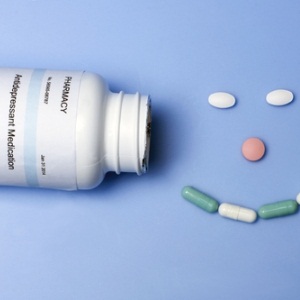
Severity of depression
In a study receiving advance online publication in Molecular Psychiatry, investigators from Massachusetts General Hospital (MGH) report that – while a diagnosis of autism spectrum disorder was more common in the children of mothers prescribed antidepressants during pregnancy than in those with no prenatal exposure – when the severity of the mother's depression was accounted for, that increased risk was no longer statistically significant.
An increased risk for
attention-deficit hyperactivity disorder (ADHD), however, persisted even after
controlling for factors relating to a mother's mental health.
Read: Causes of ADHD
"We
know that untreated depression can pose serious health risks to both a mother
and child, so it's important that women being treated with antidepressants who
become pregnant, or who are thinking about becoming pregnant, know that these
medications will not increase their child's risk of autism," says Roy
Perlis, MD, MSc, MGH Department of Psychiatry, senior author of the report.
The
authors note that, while genetic factors are known to play a substantial role
in autism, exactly how that risk may be exacerbated by environmental factors is
not well understood. While animal studies and investigations based on health
records have suggested an increased risk associated with prenatal
antidepressant exposure, others found no such association.
Read: On the autism spectrum
Risk of postpartum depression
And since
discontinuing antidepressant treatment significantly increases the risk of
relapse – including an increased risk of postpartum depression – the current
study was designed to clarify whether or not any increased autism risk could
actually be attributed to the medication.
To
investigate this possibility, the research team analysed electronic health
record data for children born at MGH, Brigham and Women's Hospital, or Newton
Wellesley Hospital – hospitals belonging to Partners HealthCare System – for
whom a diagnostic code for pervasive developmental disorder, a category that
includes autism, was entered at least once between 1997 and 2010.
They matched
data for almost 1,400 such children with that of more than 4,000 controls with
no autism diagnoses, born the same years and matched for a variety of
demographic factors.
The
children's information was paired with that of their mothers, noting any
factors related to the diagnosis and treatment of major depression or other
mental illness, including prescriptions for antidepressants and other psychotropic
drugs. A similar analysis was done for almost 2,250 children with an ADHD
diagnosis, compared with more than 5,600 matched controls with no ADHD
diagnoses.
Antipsychotic drugs
While
prenatal exposure to antidepressants did increase the risk for either
condition, in the autism-focused comparison, adjusting for factors indicating
more severe maternal depression reduced the strength of that association to an
insignificant level. Taking antidepressants with stronger action in the
serotonin pathway, which has been suspected of contributing to a possible
autism risk, did not increase the incidence of the disorder.
Read: Antipsychotics over-prescribed: study
In addition, the
children of mothers who took a serotonin-targeting non-antidepressant drug for
severe morning sickness had no increased autism incidence. Prescriptions for
antipsychotic drugs sometimes used to treat severe, treatment-resistant
depression, as well as psychotic disorders, did appear to increase the risk for
autism.
For ADHD, however, the increased risk associated with prenatal
antidepressant exposure remained significant, although reduced, even after
adjustment for the severity of maternal depression.
"There
are a range of options – medication and non-medication – for treating
depression and anxiety in pregnancy," says Perlis, an associate professor
of Psychiatry at Harvard Medical School. "But if antidepressants are
needed, I hope parents can feel reassured about their safety."
Read more:
Are antidepressants overused?
Depression and women
Off-label use of antipsychotics
Image: Antidepressant medication from Shutterstock




 Publications
Publications
 Partners
Partners










